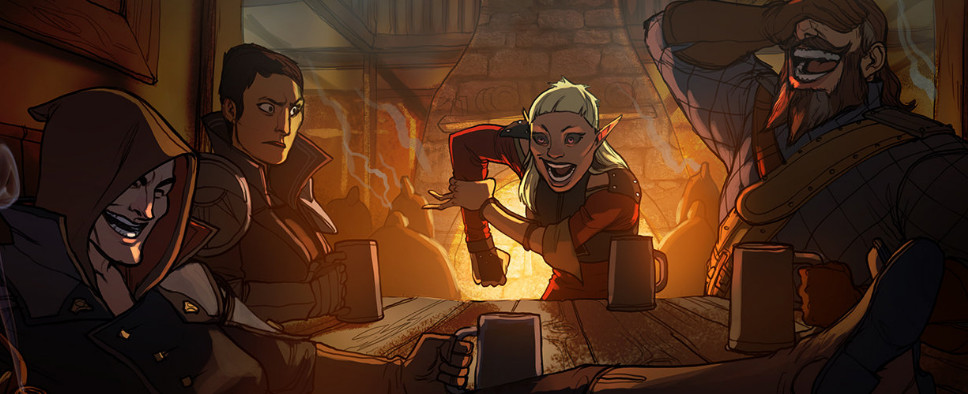Dragon Age: Inquisition Interview
-
Category: News ArchiveHits: 2194

AusGamers has published a rather interesting interview with Dragon Age: Inquisition's producer Cameron Lee, which tackles a wide array of subjects, including the game's plot, class specializations, Dragon Age Keep, the differences between the various versions of the game and more. Here's a couple of questions and answers:
AusGamers: In the previous games player characters were always capable of using Blood Magic but that seems counter to the role of a head inquisitor. Will Blood Magic be available to the player character? If it is, how will that impact the world?
Cameron: Blood magic is an interesting one. Pure blood magic in the lore of the game is really supposed to be a very evil power. In previous games it wasn't really perceived to be that way. We talked about it being that way in the lore, we'd talk about crazy mages who went down the blood magic route and how that would have nasty consequences. So in Inquisition if we can't bring that across, that consequence across then we won't do it. We're looking at a couple of different options that still give that quasi-evil kind of fantasy element without trying to go into the nitty gritty of blood magic conflicting with other elements, but we haven't landed on which one's going to be there.
So we recognise the problem and we're very cognisant of the fact that we may not be able to do blood magic, but we would certainly replace it with something pretty bad arse. I've seen some concepts of what that could be... I personally play evil people in games, and I've always been a blood mage, and I'd be quite happy to play these ones as well. Look ultimately the Inquisition is something that stands apart from the Chantry, so it's not like you as a player are beholden to them or beholden to being always good--you can be whatever you want to be. And if I want to be this bad arse necromancer kind of guy who fiddles with the spirit world I'm going to do it, because ultimately I'm going to do what has to be done to face this threat of the massive breach in the sky that threatens to swallow the world but also the threat of who is the puppet master behind that and all the other events that are taking place in the world at this time.
You certainly see a lot of different factions who would be able to step up and face this threat but are in a position of weakness for a number of different reasons. So someone is clearly behind all this, and that person is our main enemy in the game, and we have to do what we have to do. That's the loophole of the Inquisition, that they have the freedom to do what has to be done.
AusGamers: Game of Thrones has thrust the politics of fantasy worlds into the forefront of how people think about them, and the Player Character in Inquisition is the leader of a fairly political faction. Will politics play a large role in the game?
Cameron: Yes it does. There are a couple of different facets from that. There is one plot in particular which is very much a political plot, it's very much backroom deals and court intrigue and how you influence people based on your reputation. Sort of what can you pull off and at what cost to other people? There's a whole plot dedicated to that kind of experience, and it's bloody as well. Like Game of Thrones, I guess, is definitely a bloody type of politics--it's similar with us. Dragon Age has always had the blood and gore and the dark concept of politics and this plot is a great representation of that.
You mention that the Inquisition is a powerful political faction and that is absolutely true. All throughout the game you will slowly build up the Inquisition to be in a position of power, people recognise you for who you are and what authority you wield. The Inquisition has three main pillars right, they have a military force lead by one particular character, you've got a secret facet with spies and assassins lead by Leliana from DAO and then you've got a political pillar, which is all about the politics, the backroom deals and the connections you have... not just through nobles but also through merchant houses and stuff like that. And the area you decide to invest in both in terms of how you decide to grow and customise your Inquisition but also the types of content you decide to engage in is all up to the player. So if someone wants to play that kind of Game of Thrones-y political aspect they can definitely do it and that flavours the whole game and it impacts the whole game. They're still going to have to go around and kill some things themselves, but having that powerful political organisation will be reflected as well.

